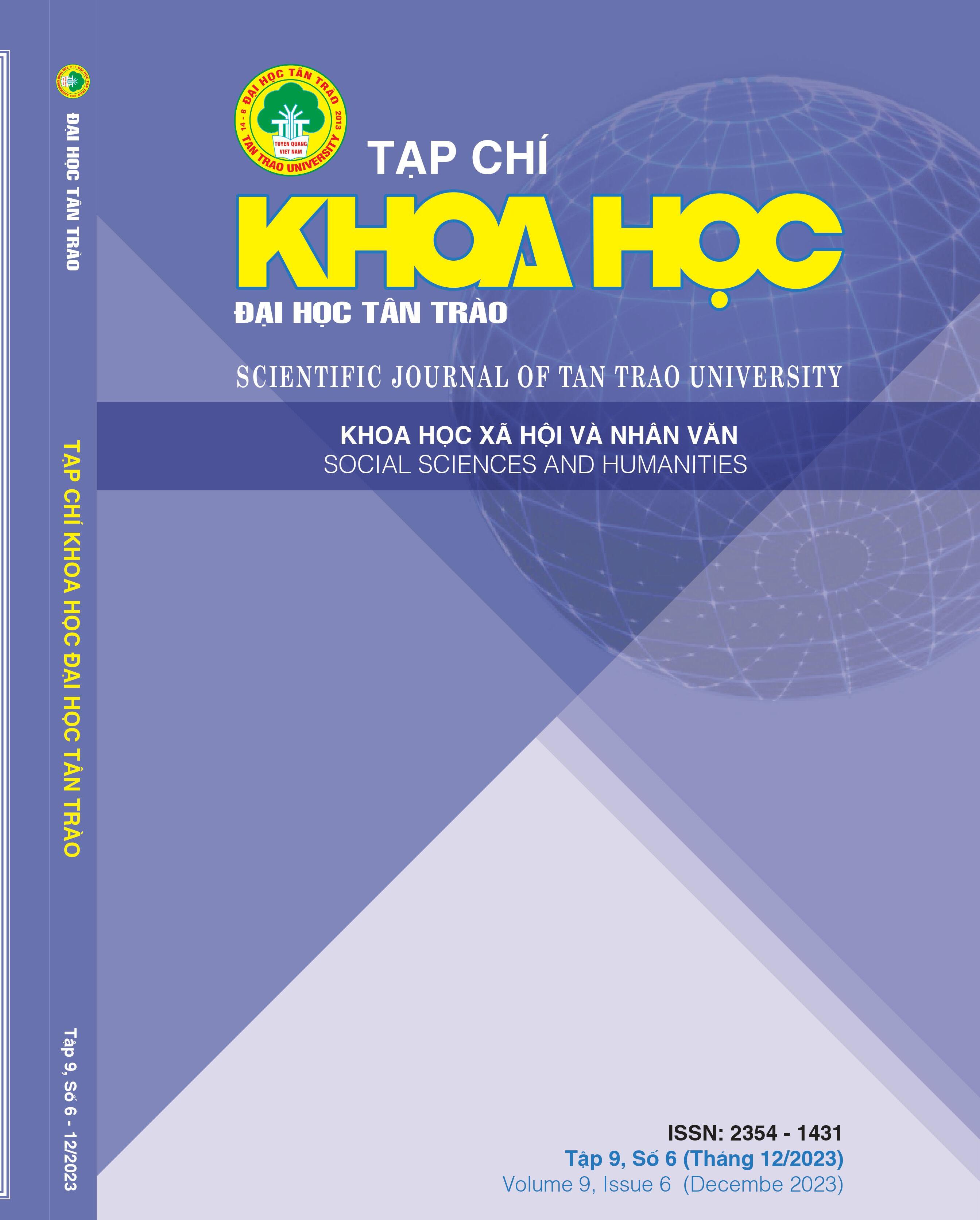BUILDING CULTURAL LIFE IN DONG NAI PROVINCE TODAY, SOME DEVELOPMENT SOLUTIONS
DOI:
https://doi.org/10.51453/2354-1431/2023/1052Keywords:
Dong Nai, development, building cultural lifeAbstract
Dong Nai is considered the "strategic hinge" of the southern provinces, where the convergence, preservation, promotion, and honor of the unique tangible and intangible cultural heritages of the indigenous culture. The movement to build a cultural life has really become a major cultural movement that has a positive and effective impact on improving material and spiritual life, making cultural values penetrate deeply into all aspects, and creating resistance to harmful products entering people's lives. However, the implementation process still has certain limitations due to different reasons. Therefore, in order to continue to replicate, spread, and develop in-depth, it is necessary to carry out more synchronous solutions to contribute to building a healthy cultural life and an increasingly civilized and better society.Downloads
References
[1]. Communist Party of Vietnam (2011). Document of the 11th National Congress of Deputies, National Political Publishing House, Hanoi.
[2]. Dong Nai Provincial Party Committee (2020). Document of the 11th Party Congress of Dong Nai Provincial Party Committee, term 2020 - 2025, Dong Nai Printing Enterprise.
[3]. Steering Committee of the movement "All people unite to build cultural diversity" (2020). Report No. 162/BC-BCD dated October 2, 2020 on "Summarizing 20 years of implementing and implementing the movement for the period 2000 - 2020 in Dong Nai province", Dong Nai People's Committee.
[4]. Le Kim Bang (2015). Solutions to build and develop culture and people in Dong Nai to develop comprehensively, meeting the requirements of sustainable development. Follow http://www.baodongnai.com.vn/tien-toi-dai-hoi-dai-bieu-toan-quoc-lan-12-cua-dang.
[5]. Nguyen Quang Hoa (2021). Impact of building grassroots cultural life on ideology, morality, lifestyle in family and in residential community, Front Magazine, http://m.tapchimattran.vn/dai-doan- ket cong-dong-dan-cu-39957.html.
[6]. Proceedings of the national scientific conference (2017). 70 years of new life work of President Ho Chi Minh. Theoretical and practical values in the movement of building new countryside and civilized cities, National Political Publishing House of Truth, Hanoi.
[7]. Nguyen Van Quyet (2000). “Building cultural life in Bien Hoa industrial residential area in the period from 2000 to 2020”, Master Thesis, Cultural Studies, University of Culture, Hanoi.
[8]. Nguyen Van Quynh (2017). "The Party Committee of Binh Duong province led the construction of grassroots cultural life from 2003 to 2013", Master Thesis, History of the Party, Academy of Politics, Ministry of National Defense.
[9]. Cao Thanh Quynh (2018). "Promoting the role of young resources in building cultural life in rural Binh Duong province today", Doctoral Thesis, Philosophy, Academy of Politics, Ministry of National Defense.
[10]. Ha Van Tang (2007). Ho Chi Minh's thought on building cultural life at grassroots level, Communist Review, No. 773, pp. 12-16.
Downloads
Published
How to Cite
Issue
Section
License

This work is licensed under a Creative Commons Attribution-ShareAlike 4.0 International License.
All articles published in SJTTU are licensed under a Creative Commons Attribution-ShareAlike 4.0 International (CC BY-SA) license. This means anyone is free to copy, transform, or redistribute articles for any lawful purpose in any medium, provided they give appropriate attribution to the original author(s) and SJTTU, link to the license, indicate if changes were made, and redistribute any derivative work under the same license.
Copyright on articles is retained by the respective author(s), without restrictions. A non-exclusive license is granted to SJTTU to publish the article and identify itself as its original publisher, along with the commercial right to include the article in a hardcopy issue for sale to libraries and individuals.
Although the conditions of the CC BY-SA license don't apply to authors (as the copyright holder of your article, you have no restrictions on your rights), by submitting to SJTTU, authors recognize the rights of readers, and must grant any third party the right to use their article to the extent provided by the license.


